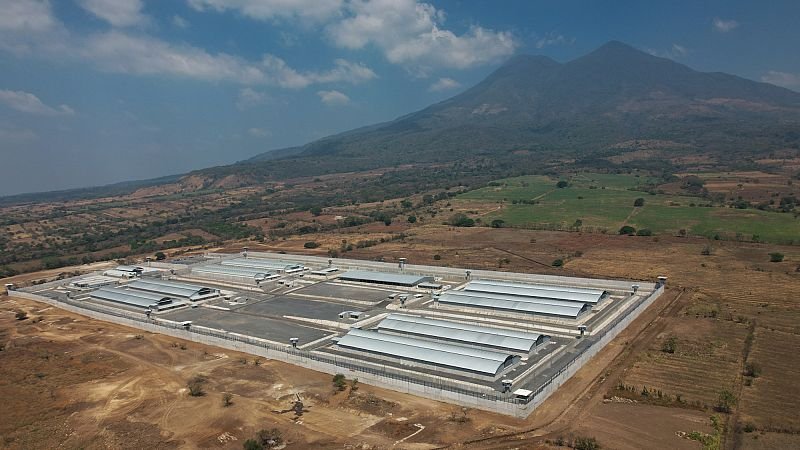The Trump administration acknowledged deporting a Maryland resident to a large prison in El Salvador because of an “administrative mistake,” even though a court had ordered against sending him back to the country.
Although it seemed to recognize the error, the government contended that it was unable to repatriate him to the United States, where
court records
Submitted by his attorneys, the documents claim he has resided continuously since 2011 and has a family.
Lawyers representing the US government admitted in a
court filing
On Monday, they deported Kilmar Armando Abrego Garcia, an El Salvador native residing in Maryland with his spouse and their five-year-old child, even though he was supposed to be safeguarded against deportation to his home country.
His spouse and their disabled offspring, both of whom hold U.S. citizenship, are represented by legal professionals.
told
the court.
“Despite knowing about his protected status against deportation to El Salvador, Abrego Garcia was mistakenly sent there due to an administrative error,” the government noted in their submission.
The accused claimed that the U.S. did not have the authority to facilitate their transfer from the well-known CECOT prison.
Removing an individual who has protected legal status
In 2019, Abrego Garcia received protected legal status from an immigration judge, preventing the government from deporting him to El Salvador.
Attorneys representing Abrego Garcia mentioned that he arrived in the United States at approximately 16 years old, escaping gang-related violence. They noted in their submission that starting from about 2006, gang members had been pursuing, assaulting, and threatening to abduct and murder him so as to pressure his parents into giving in to escalating extortion requests.
The individual from El Salvador does not have any criminal history in the United States or elsewhere, as stated by his attorneys. They also mentioned that he has no connection with gangs, contrary to assertions made by the U.S. government. His lawyers added that the government “has failed to provide even a shred of proof supporting these baseless allegations.”
In the official court documents, initially uncovered by The Atlantic, the government minimized worries that Abrego Garcia might face torture or death while in CECOT custody.
This situation seems unprecedented according to Abrego Garcia’s lawyer, Simon Sandoval-Moshenberg, who informed the publication that he has not encountered a case where the authorities deliberately expelled an individual who was previously awarded protected status.
Attorneys representing the plaintiff stated that immigration officials would face no legal barriers in deporting him to any nation apart from El Salvador. They alleged that the “defendants considered these legal processes too cumbersome, thus chose to disregard them and proceeded with deporting Plaintiff Abrego Garcia to El Salvador regardless.”
When reached out to by Euronews, the U.S. Department of Homeland Security maintained that they had “intelligence reports” indicating Abrego Garcia was involved with gangs.
“No matter whether he is in El Salvador or a U.S. detention center, he needs to be confined,” said DHS Assistant Secretary Tricia McLaughlin to Euronews.
Euronews reached out to ICE for their input as well.
The Trump administration on
On March 16, over 250 Venezuelans were deported.
without a hearing to a high-security prison in El Salvador as part of an agreement with the Central American nation.
The authorities charged them with being part of the Tren de Aragua criminal gang and expelled them using the AlienEnemiesAct from 1798 – a law that has only been applied three times throughout U.S. history.
Following an image in a news piece about CECOT wherein inmates’ faces were obscured, Abrego Garcia’s spouse recognized him from his tattoos and two marks on his head.

